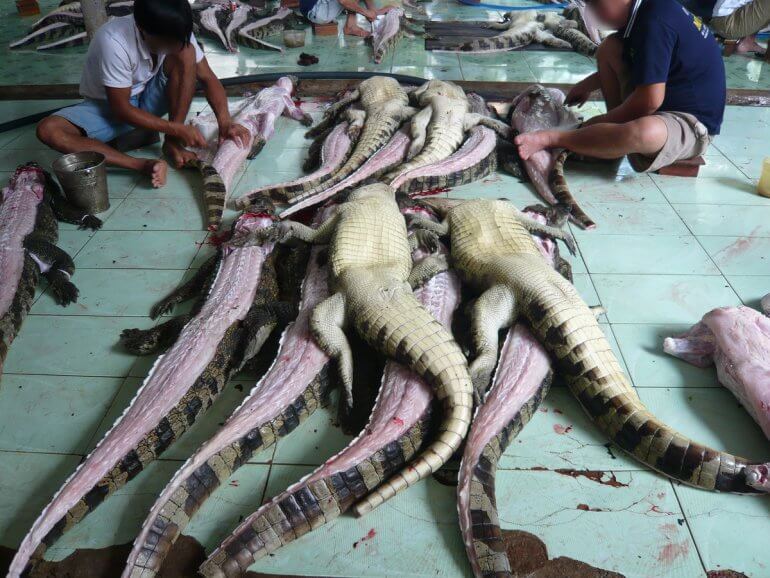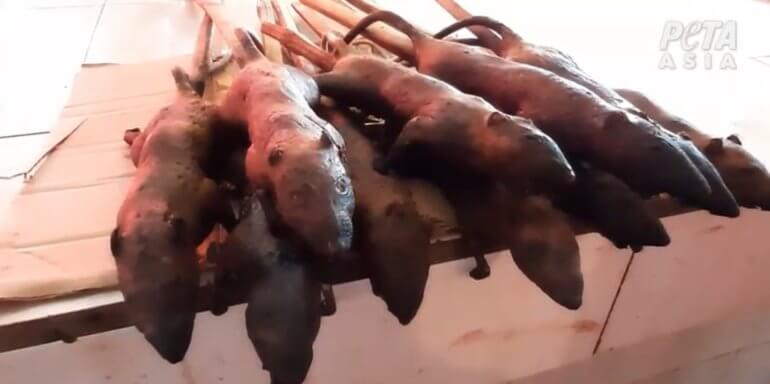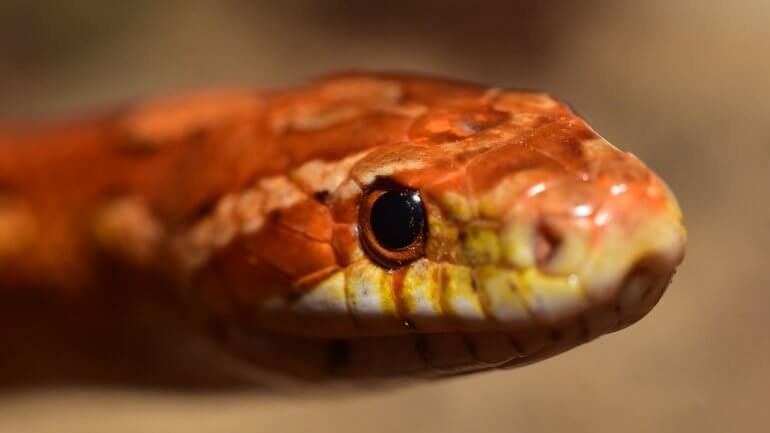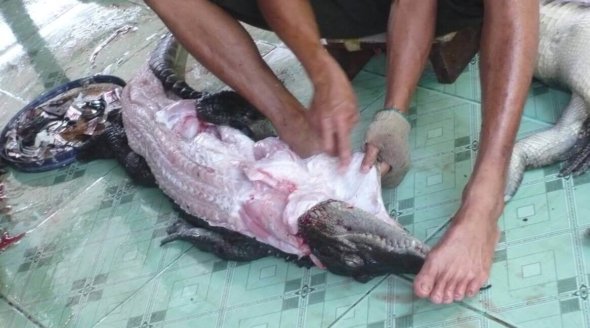Is the Next Pandemic in Your Closet?
Conservation experts have warned that the practices of the exotic-skins industry increase the risk of future epidemics, as the wild animals it uses are typically confined and slaughtered in filthy conditions – just as animals in “wet markets” are – creating a breeding ground for pathogens similar to the novel coronavirus.
 Exotic skins farm
Exotic skins farm

Many alligators and crocodiles who are raised on farms for their skin are kept crowded together in highly unhygienic conditions, one on top of the other in pits of putrid water. This creates a major breeding ground for many zoonotic pathogens – causative agents of diseases that can spread from other animals to humans – including salmonella, vibrio, Aeromonas spp, Pseudomonas spp, E coli, trichinella, and West Nile virus – all of which crocodilians have been found to carry and can pass on to humans.
PETA is calling for a complete shutdown of exotic-animal farms.
Crocodiles Cut Open and Skinned for Handbags
A PETA exposé of a farm in Vietnam revealed crocodiles packed together in filthy conditions. Vietnam exports around 30,000 crocodile skins every year.
This is life – and death – for many victims of the fashion industry, whose skins are used to make “luxury” leather bags, belts, and watchbands sold around the world. The animals imprisoned closely together take out their aggression on one another, and injuries commonly lead to infection and disease.
The images of workers in blood-soaked abattoirs are reminiscent of the filthy, cramped wet markets where scientists believe the novel coronavirus originated. At these markets, animals such as snakes and lizards, also used for their skin in fashion, can be bought for consumption.
All Animals Deserve Compassion
When it comes to fear and the desire to be free from pain, we are all the same, whether we have skin, fur, or scales.
Crocodiles like to have fun by blowing bubbles. Snakes are intelligent, quick learners, and some cobras even “play dead” until potential threats have passed.
Just like us, animals want to enjoy life, and they feel fear when their lives are threatened.
The good news is that, even before the current crisis, exotic skins were falling out of favour. Many major designers and retailers – including Chanel, Nine West, Victoria Beckham, Nike, and others – have banned exotic skins from their designs, and the state of California banned them from being sold altogether.
Don’t Let the Next Global Crisis Come From Your Wardrobe
As long as humans continue to raise and kill animals for their skin, these filthy farms will continue to be breeding grounds for lethal diseases. Commit to wearing exclusively vegan materials today, and prevent countless animals from being slaughtered by pushing brands to ban exotic skins.





